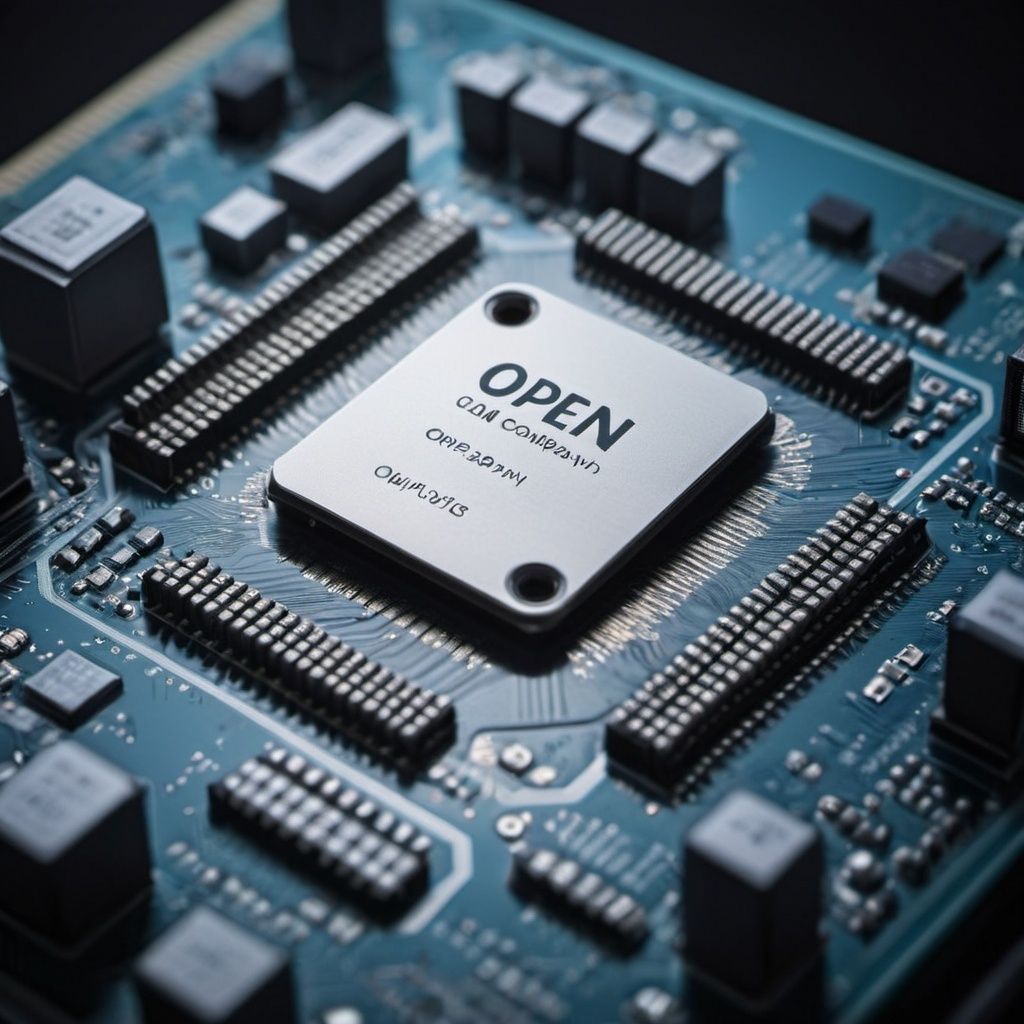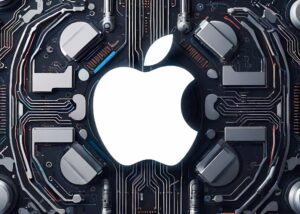Table of Contents
ToggleIn the ever-evolving landscape of technology, the concept of compute stands as a pivotal force driving innovation and shaping the digital sphere. From powering artificial intelligence to revolutionizing data analytics, it has emerged as the cornerstone of modern digital infrastructure.
The Rise of Compute: Fueling the Fourth Industrial Revolution
As the digital revolution unfolds, compute plays a central role in propelling us into the era of digital transformation. Much like oil fueled the industrial revolution, compute now serves as the lifeblood of the fourth industrial revolution, driving unprecedented levels of innovation and disruption across industries.
Empowering Businesses with Scalable Solutions
One of the key advantages of compute lies in its scalability. Cloud computing platforms offer businesses the flexibility to scale resources dynamically, ensuring optimal performance even during periods of high demand. This scalability not only enhances operational efficiency but also drives cost savings by eliminating the need for costly infrastructure investments.
Accelerating Time-to-Market with Cloud Services
In today’s fast-paced business environment, speed is of the essence. Cloud services empower organizations to accelerate their time-to-market by providing instant access to scalable infrastructure and development tools. This agility enables businesses to iterate quickly, experiment with new ideas, and stay ahead of the competition.
Ensuring Robust Security Measures
As data breaches continue to pose significant threats to organizations, ensuring robust security measures is paramount. Cloud compute providers invest heavily in advanced security protocols, encryption techniques, and compliance certifications to safeguard sensitive data. By leveraging these capabilities, businesses can mitigate risks and maintain regulatory compliance with ease.
Embracing Edge Computing for Real-Time Insights
The evolution of edge computing brings compute resources closer to where data is generated, enabling real-time processing and analysis. This distributed approach not only reduces latency but also unlocks new possibilities for edge-driven applications such as autonomous vehicles and smart cities. With edge computing, organizations can glean actionable insights and make data-driven decisions in real-time.
Harnessing the Potential of Quantum Computing
The emergence of quantum computing heralds a new era of unprecedented computational power. By harnessing the principles of quantum mechanics, quantum computing promises to solve complex problems exponentially faster than traditional computers. From drug discovery and cryptography to optimization and machine learning, the potential applications of quantum computing are vast and transformative.

Why compute is the new oil?
Compute has emerged as the new oil in the digital era due to its fundamental role in powering modern technology and driving innovation across industries. Just as oil fueled the industrial revolution, compute serves as the cornerstone of the digital transformation we are experiencing today.
The analogy between compute and oil stems from their critical importance in powering progress. Much like oil was essential for fueling machinery and transportation in the past, compute now powers a wide array of digital technologies, from artificial intelligence and machine learning to data analytics and cloud computing.
Computing is the backbone of modern infrastructure, enabling businesses to process vast amounts of data, solve complex problems, and develop groundbreaking technologies. In essence, it serves as the lifeblood of the digital economy, facilitating communication, commerce, and collaboration on a global scale.
Moreover, computing is abundant and ubiquitous, much like oil was during the industrial age. With the advent of cloud computing and distributed systems, compute resources are readily accessible to businesses and individuals, driving innovation and democratizing access to technology.
Additionally, compute has become a valuable commodity in its own right, with companies investing heavily in developing and harnessing advanced computing capabilities to gain a competitive edge. Just as nations once competed for control over oil reserves, businesses now vie for dominance in the digital landscape, leveraging compute to drive growth and innovation.
In conclusion, compute has earned its status as the new oil by virtue of its essential role in powering the digital revolution. Its widespread availability, transformative capabilities, and economic significance make it a cornerstone of modern civilization, shaping the future of technology and driving progress in the digital age.
Sam Altman, a prominent figure in the world of technology and innovation, offers insightful perspectives on the analogy of “why compute as the new oil.” Altman, known for his roles as an entrepreneur, investor, and former president of Y Combinator, echoes sentiments that resonate deeply within the tech community.
In Altman’s view, likening compute to oil underscores its pivotal role in driving modern civilization forward. He perceives computation not merely as a commodity, but as a fundamental resource that powers myriad aspects of our digital existence. Much like oil fueled the industrial revolution, Altman contends that compute serves as the lifeblood of the digital age, propelling advancements in artificial intelligence, data analytics, and beyond.
Altman emphasizes the transformative potential of computing, asserting that its impact extends far beyond the realm of technology. He envisions a future where computing revolutionizes industries, transforms business models, and shapes societal norms. From healthcare and education to transportation and entertainment, Altman foresees compute as the linchpin driving innovation across diverse domains.
Moreover, Altman advocates for responsible stewardship of compute resources, urging stakeholders to prioritize transparency, accountability, and ethical considerations. He acknowledges the immense power wielded by compute technologies and underscores the importance of leveraging them responsibly for the betterment of humanity.
In essence, Sam Altman’s perspective on computing as the new oil encapsulates the profound influence of technology on our lives. His insights serve as a poignant reminder of the transformative potential inherent in computing and the imperative of harnessing it judiciously to navigate the complexities of the digital age.
Elon Musk, a visionary entrepreneur and technologist, offers a distinctive perspective on the concept of “compute as the new oil.” Musk, known for his groundbreaking work in various fields such as electric vehicles, space exploration, and renewable energy, brings a unique vantage point to the discussion.
In Musk’s view, likening computation to oil underscores its indispensable role in powering the digital revolution. He perceives computation not only as a resource but as the very fabric upon which our modern society is built. Much like oil fueled the industrial revolution, Musk contends that computation serves as the driving force behind the ongoing transformation of our world.
For Musk, compute represents more than just raw processing power; it embodies the potential to unlock new frontiers of innovation and discovery. He envisions a future where compute technologies such as artificial intelligence, machine learning, and quantum computing revolutionize industries, redefine human capabilities, and propel humanity towards unprecedented heights of progress.
Moreover, Musk sees computation as a catalyst for sustainability and progress, advocating for its responsible use to address pressing global challenges such as climate change, resource scarcity, and societal inequality. He believes that by harnessing the full potential of computing, we can create a more equitable, prosperous, and sustainable future for all.
In essence, Elon Musk’s perspective on compute as the new oil underscores the transformative power of technology to shape our collective destiny. His insights serve as a clarion call to embrace innovation, foster collaboration, and leverage compute technologies to build a brighter tomorrow for generations to come.
Conclusion
In conclusion, compute stands as the bedrock of our digital future, driving innovation, powering businesses, and shaping the trajectory of technology. Much like oil fueled the industrial revolution, compute now serves as the catalyst for the fourth industrial revolution. By harnessing the full potential of compute technologies and embracing emerging paradigms such as edge and quantum computing, organizations can unlock new opportunities, drive growth, and chart a course towards a more connected and prosperous future.













+ There are no comments
Add yours